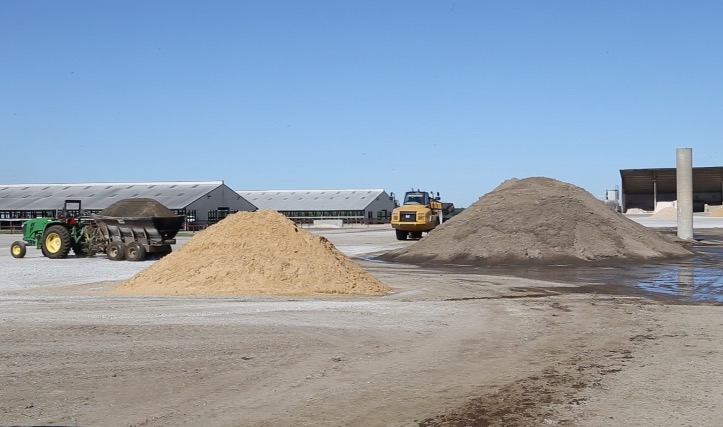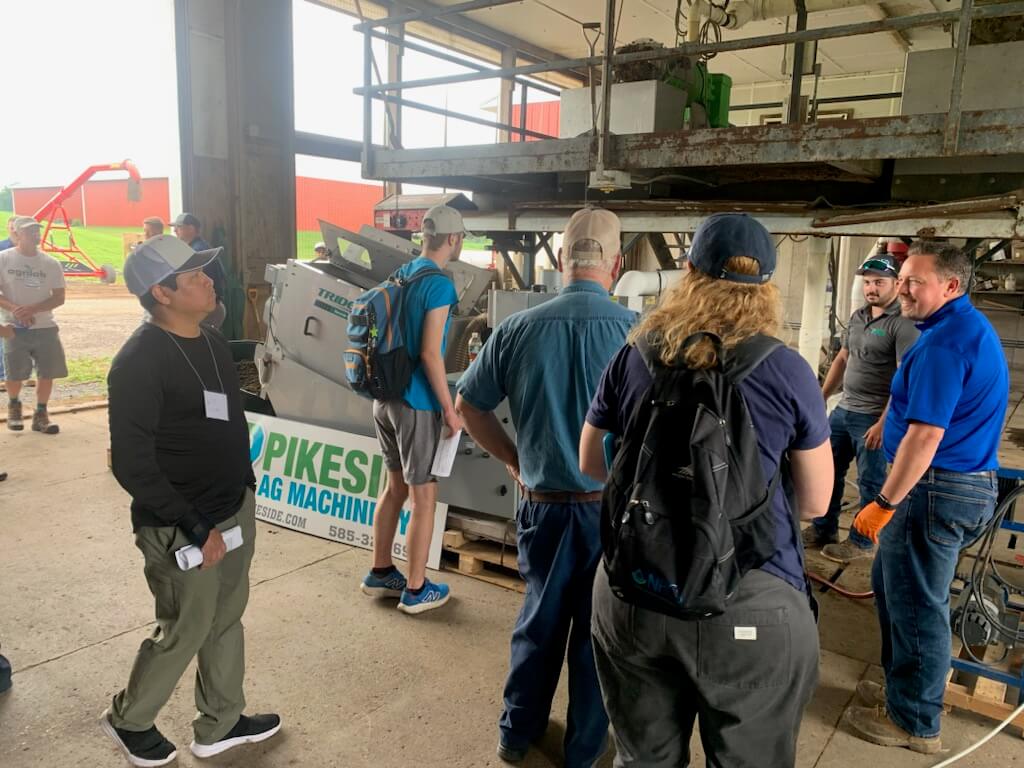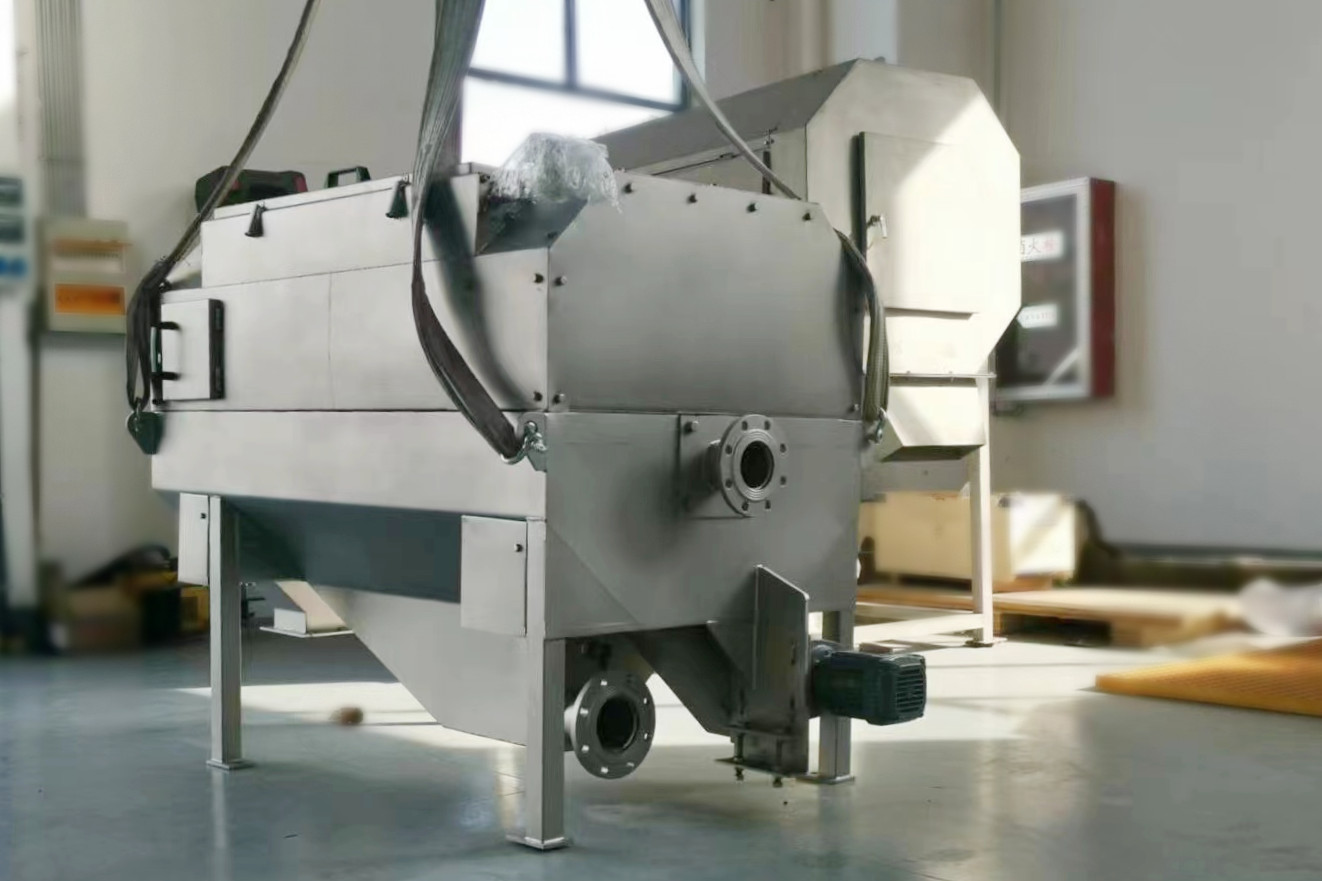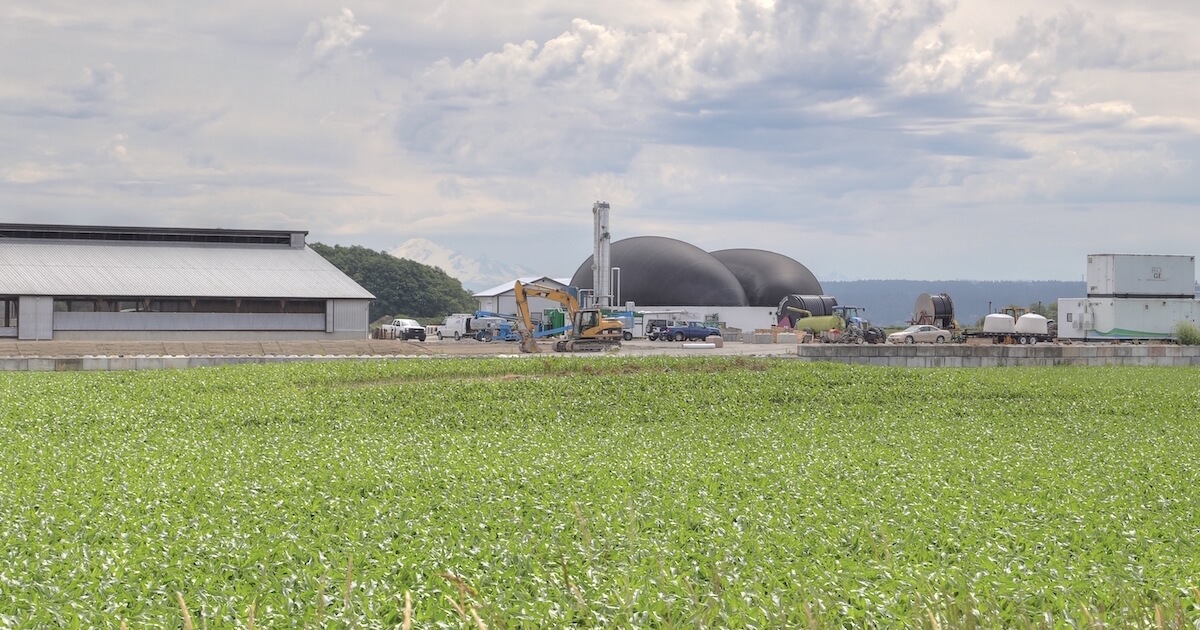Earlier this month our team had an opportunity to showcase advanced manure treatment with the…

Flush flume and manure treatment
Flush flume and manure treatment requirements – February 15th, 2022. If you have flush flume barns on your dairy you know how important an effective manure treatment is. A good manure treatment systems helps with the performance of the sand settling lanes. And it prevents that too many solids enter the lagoon. This helps close the loop and allows the farm to reuse clean recycle water for their flush flume system. Let’s look at this cycle a bit more in detail.
FLUSH FLUME REQUIRES LOW SOLIDS WATER
Especially for sand-laden manure handling, a flume system is a very common option. But it does require the supply of high volumes of water. Dairy farms can use up to 2,000 gpm to collect and transport the sand-laden manure. The cleaner the flush water the better will the sand particles settles in the sand lanes. Farms that reclaim a high amount (> 90%) of their bedding sand are better able to control their costs. And more available sand allows to deep bed which in turn improves cow comfort. After the sand separation a dedicated treatment process targets the organic matter in the manure. Systems that combine effective coarse and fine solids separation are considered the golden standard for this job. The combined treatment is capable of removing almost all suspended solids from the water. You can image what this does to the solids loading in the lagoons. Farms that previously had to budget high dollar amounts for yearly lagoon clean outs are now able to go many years without additional maintenance. Another advantage: the risk of lagoon inversion is basically eliminated.

Image: Dairy farms with flush flume systems that use advanced manure treatment are able to reclaim large amounts of quality bedding sand from their manure.
CHOOSING ECONOMIC TREATMENT CAPACITY
A detailed article published by the Dairyland Initiative of the University of Wisconsin recommends the flush water to have less than 2% organic solids to ensure effective settling lanes. Let’s do a quick comparison. A system like the Modular TNZ Water Recovery is capable of producing effluent water with less than 0.5% total suspended solids. So in other words, not always does a farm require full treatment capacity for their manure treatment system. This can help save the farm a lot in capital and operating expenditures.
Connect with our team at 1-800-799-3740 to learn how Trident is able to help at your operation.



